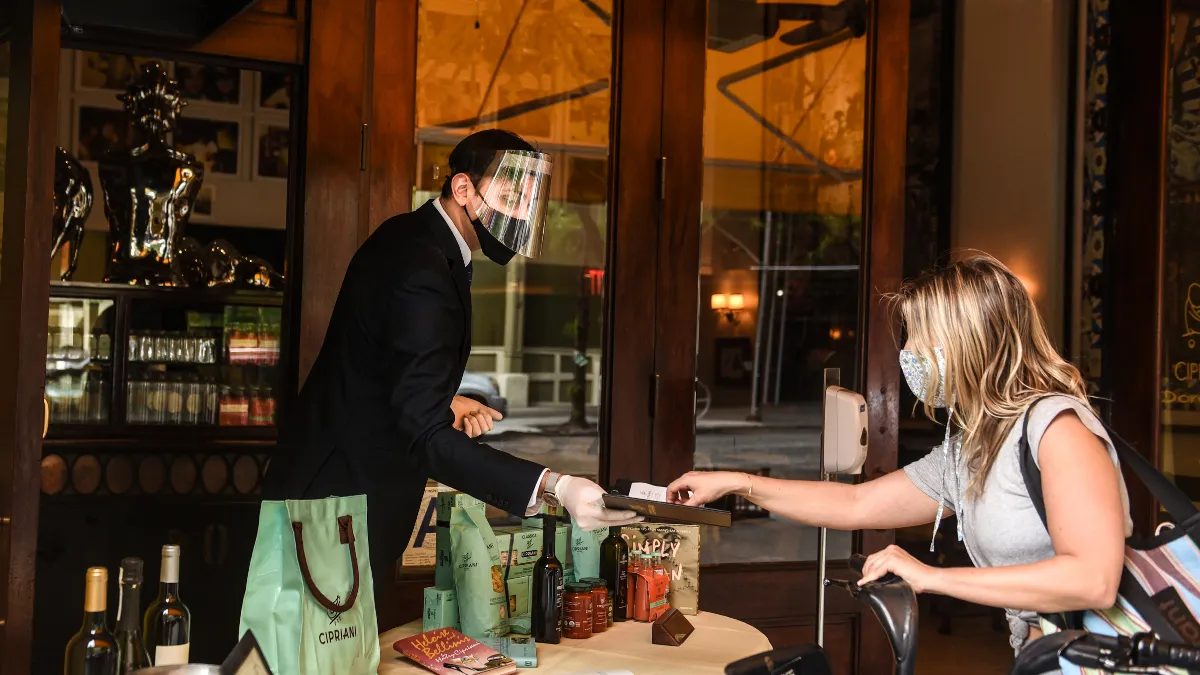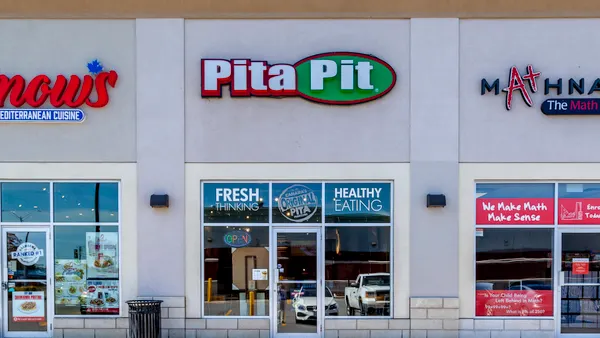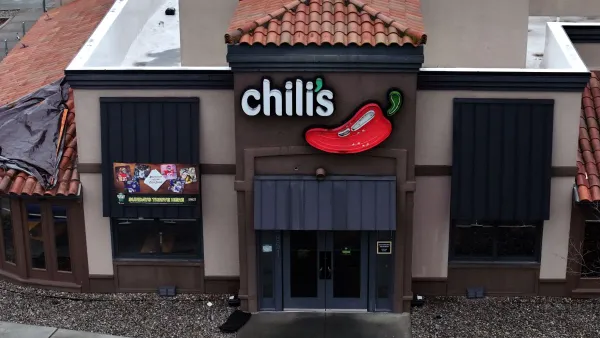Dive Brief:
- A recent study from the National Bureau of Economic Research finds that increasing the tipped minimum wage would have little effect on reducing the likelihood of employees falling into low-income brackets. The study examined states that have variations of the tipped minimum wage in place.
- The study also finds that higher tipped wages reduce jobs among tipped restaurant workers. "Our evidence is quite clear and unambiguous in pointing to higher tipped minimum wages reducing jobs among tipped restaurant workers, without enough of an increase in earnings of those who remain employed to offset the job loss," the study states.
- The study comes as a debate simmers over whether to increase not only the federal minimum wage of $7.25 per hour, but also the federal minimum wage for tipped workers, which is $2.13 per hour. The Raise the Wage Act of 2021 would end the tip credit in favor of a $15 minimum wage by 2025.
Dive Insight:
The debate over raising the subminimum wage — which hasn't been increased since the early 1990s — continues to roil both sides, with each leaning on separate studies to support their positions.
The National Restaurant Association, for example, argues restaurants "cannot absorb a dramatic cost increase and higher wages without cutting back on worker hours and/or eliminating positions." One Fair Wage, on the other hand, posits that raising the tipped minimum wage will improve the restaurant industry's financial future. The nonprofit points to research that finds restaurant industry growth is stronger and tipping is higher in the seven states that have adopted a full minimum wage with tips on top.
The NBER study contradicts recent analysis from the Center for American Progress that shows eliminating the subminimum wage in favor of a blanket wage would help alleviate poverty and also grow the economy. This analysis also finds that such a move would advance gender and racial equality.
Racial inequity in the restaurant industry has worsened during the COVID-19 pandemic. A report from One Fair Wage shows that nearly 90% of Black restaurant employees have experienced at least a 50% decline in tips since the pandemic began, compared to 78% of all restaurant workers.
Still, several full-service restaurant chains and organizations continue to support the subminimum wage. TGI Fridays CEO Ray Blanchette said ending the tipped minimum wage would lead to fewer employee hours and higher menu prices. Darden Restaurants said its tipped team members earn more than $20 an hour on average. One Fair Wage sued the company, however, over its tipping policy. The nonprofit claims the policy results in tipped employees of color being paid less than tipped White employees.
The subminimum wage debate is more complex than arguments over the federal minimum wage, which has been challenged by employees since the formation of the Fight for $15 labor group in 2012. That pressure contributed to a wage jump of 10% in the second quarter, the biggest increase in years. Conversely, there are restaurant servers fighting to keep tips in place, arguing they are better compensated with such a model than they would be with a blanket minimum wage.














